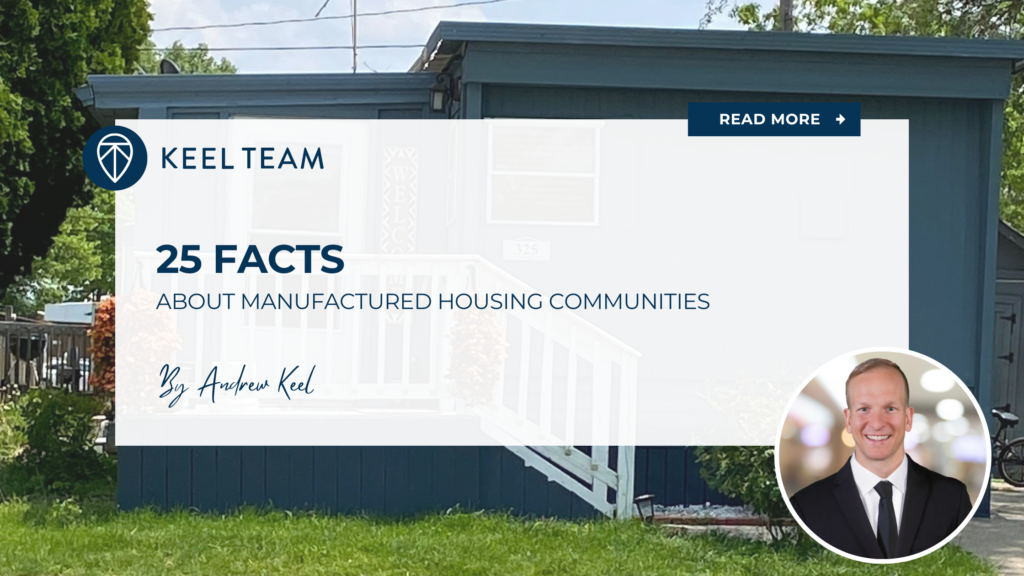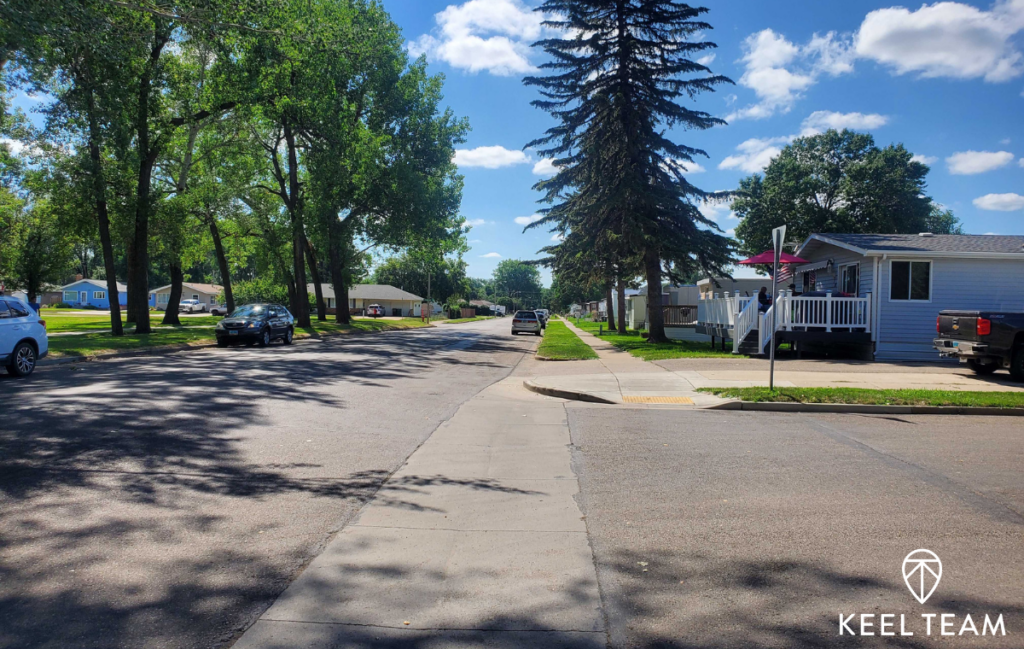25 Facts About Manufactured Housing Communities
-
 Andrew Keel
Andrew Keel

Here are 25 interesting and sometimes surprising facts about manufactured housing communities or mobile home parks:
1. Affordable Housing:
Mobile home parks provide one of the largest sources of non-subsidized affordable housing in the U.S.
2. Tornado Resistance:
Modern manufactured homes, when installed to HUD standards, can be as safe as site-built homes during tornadoes, provided they’re anchored correctly.
3. Senior Living:
A significant percentage of mobile home parks cater exclusively to residents over the age of 55, offering a quiet, community-focused lifestyle.
4. Origins:
The first mobile homes date back to the early 20th century, designed as travel trailers for vacations rather than permanent residences.
5. Major Investment:
Billionaire Warren Buffett owns Clayton Homes, one of the largest producers of manufactured homes, and continues to invest in the industry.
6. Rent Control:
In some areas, mobile home parks are subject to rent control laws, which can protect residents from extreme rent increases.
7. Ownership Split:
In most manufactured housing communities, residents own their homes but lease the land, which creates a unique relationship between homeowners and landowners.
8. Explosion in Popularity:
Manufactured homes gained popularity after World War II, as returning soldiers sought affordable housing solutions.
9. Equity Struggles:
Unlike traditional homes, mobile homes typically depreciate in value like vehicles, although land ownership can offset this.
10. HOA-Like Rules:
Many mobile home parks have strict rules governing home appearance, landscaping, and community behavior, similar to homeowners’ associations.
11. More Green Than You Think:
Manufactured homes are often more energy-efficient than traditional homes, thanks to the use of modern insulation and construction techniques.
12. High Density:
Some mobile home parks have over 1,000 residents, creating densely populated communities within suburban or rural areas.
Are you looking for more information? Download my FREE eBook and deep dive into this niche asset class!

13. Crime Perception vs. Reality:
Although mobile home parks are sometimes stereotyped as high-crime areas, many mobile home parks actually have lower crime rates than nearby urban neighborhoods.
14. Gated Communities:
Some upscale mobile home parks function like gated communities, offering amenities such as swimming pools, golf courses, and clubhouses.
15. Limited Locations:
Zoning laws often limit where new mobile home parks can be developed, contributing to a shortage of available spaces for affordable housing.
16. Wealthy Mobile Home Parks:
Some mobile home parks in prime locations, like Malibu, California, house multimillion-dollar mobile homes and are home to celebrities.
17. Seasonal Communities:
Many mobile home parks cater to “snowbirds” who live in the communities during the winter and migrate north during the summer.
18. Disaster Relief:
After Hurricane Katrina, FEMA used manufactured homes as temporary housing for displaced families.
19. Second Home Ownership:
Many retirees own mobile homes as second homes, particularly in warm-weather states like Florida and Arizona.
20. High Eviction Rates:
Residents of mobile home parks are sometimes at risk of eviction if the landowner decides to redevelop or sell the property, despite home ownership.
21. Environmental Impact:
Some environmentalists argue that mobile home parks make efficient use of land and resources compared to sprawling suburban developments.
22. Homesteading:
Some states allow mobile home residents to claim ownership of the land under their homes if they’ve occupied it continuously for a certain number of years (adverse possession).
23. Skirting Controversy:
The “skirting” (material around the base of the home) is often a hot topic, with some mobile home parks requiring specific materials to keep up aesthetic standards.
24. Unique Financing:
Financing a manufactured home is more complex than a traditional home, with many buyers relying on personal property loans (chattel loans) rather than mortgages.
25. Rising Popularity:
Despite past stigma, demand for mobile homes has surged in recent years due to rising housing costs, making them an increasingly attractive option for homebuyers.
These facts highlight the diversity and complexity of manufactured housing communities, which are often misunderstood but provide a vital source of affordable housing across the U.S.
Learn more about mobile home park investing.
Interested in learning more about mobile home park investing? Get in touch with us today to find out more.
Disclaimer:
The information provided is for informational purposes only and is not investment advice or a guarantee of any kind. We do not guarantee profitability. Make investment decisions based on your own research and consult registered financial and legal professionals. We are not registered financial or legal professionals and do not provide personalized investment recommendations.
Andrew Keel
View The Previous or Next Post
Subscribe Below 👇





